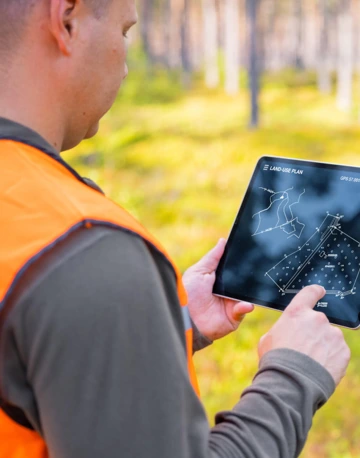Geographic Information Science
Undergraduate Certificate
Quick Facts

#1
In Alumni Earnings
Potential Among Arizona's
Public Universities
- Payscale, 2024
Top 1%
of all Higher-Ed
Institutions
- Center for World University Rankings, 2024
The Geographic Information Science (GIS) Certificate delves into geographic data, teaching you how to collect, create, manage, analyze, and visualize information that shapes our world. GIS leverages cutting-edge computer programs to uncover critical relationships between places, people, and geographic phenomena, providing invaluable insights for a wide range of applications. From everyday tasks like optimizing delivery routes and planning utility infrastructure to tackling global challenges like climate change and disaster response, GIS skills are in high demand across diverse industries.
This certificate equips you with the practical skills and theoretical knowledge needed to excel in this dynamic field. The curriculum offers courses that tailor your learning experience to your specific interests and career goals. Explore specialized areas like database management to effectively organize and access geographic data, master the art of cartography to create compelling and informative maps, explore the power of remote sensing to gather data from afar, and even learn about the exciting applications of drones in GIS.
Through hands-on projects and a culminating practicum, you'll gain proficiency in acquiring, creating, analyzing, interpreting, and mapping data, focusing on a topic of your choice to build a portfolio that showcases your expertise.
This Geographic Information Science Certificate empowers you to become a sought-after professional in a field that's transforming how we understand and interact with the world around us.
Proficiency in algebra and statistics is recommended but not required.
*Residents of some U.S. Territories may not be eligible. Please see our Eligibility & State Authorization page for more information.
This course is intended to provide a comprehensive introduction to the use of maps and map-like images for communication, analysis, and decision support. You will learn to acquire, read, and interpret visual representations of the earth. These scientific principles are required to advance and understand all geospatial technologies, including geographic information systems, global positioning systems, and remote sensing.
This course introduces you to the design, production, and interpretation of maps, a fundamental skill in GIST. Cartography is a fundamental tool of geography and a science and art in its own right. Cartography uses principles of design, perception, statistics, and communication. Laboratory exercises give you additional experience with GIS-based skills through the use of ArcGIS software.
This course is an introduction to the theories and skills of locating, managing, integrating, analyzing, and visualizing quantitative and geospatial data for environmental scientists. Appropriate application of geospatial and data management tools can be used to explore patterns and relationships in data, seek explanations, and develop solutions to pressing environmental challenges.
This is an introduction to the application of GIS and related technologies for both the natural and social sciences. Conceptual issues in GIS database design and development, analysis, and display.
An independent GIS project.
Outcomes
Skills
Earning your Undergraduate Certificate in Geographic Information Science will build core skills, including:
- Application development
- Cartographic design
- Data analysis
- Data visualization
- Database management
- Drone operation
- Georeferencing
- Hydrological analysis
- Image interpretation
- Land use land cover classification
- Programming
- Spatial analysis
Potential Career Paths
Graduates of the Undergraduate Certificate in Geographic Information Science program will be prepared to pursue careers in the following fields:











